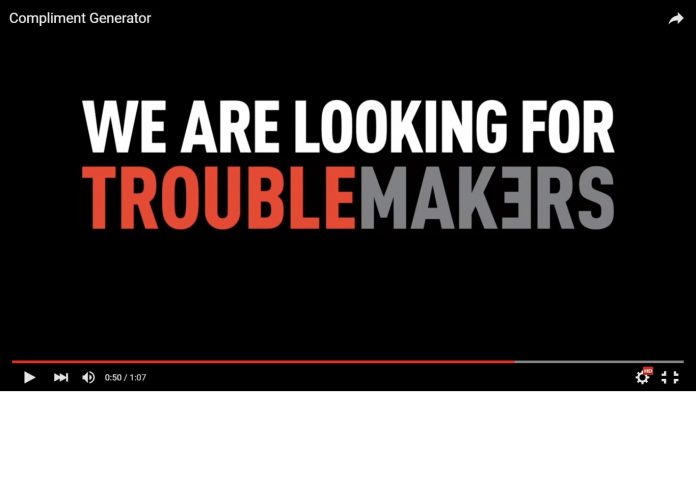Sapient India new recruitment campaign seeks to buck clichéd recruitment strategies
When a company announces that it wants to hire troublemakers, one cannot but sit up and take notice. Creative recruiting is not a trend common enough to be dismissed as a regular talent search strategy. A majority of the recruitment advertisements, the world over, follow the clichéd format. They seek particular academic degrees and past performances that speak more about the years spent at work than about the potential. It is a no-brainer that hiring based on resumes can only aid companies to lose the talent war faster in a tight talent market.
Enter Sapient India, which, in looking to increase its workforce by a whole 20 per cent by the end of this year, has launched a two-month India-wide campaign that does away with traditional talent-hunt strategies. The company that provides digital transformation solutions to businesses, is on a mission to find innovative minds—people who can dexterously merge creativity with technology, to provide best-fit solutions to the company’s clients looking to mount the rapidly moving digital ride.
The ’troublemaker’ campaign opens with a series of questions to test whether a job hopeful ‘misfits’ into the company culture that focusses on innovation. Questions that piqué curiosity over whether the individual is ‘troublemaker’ enough have to be negotiated; some of them also check for emotional quotient alongside potential in an individual. The results of the quiz reveal whether one has a disruptive enough disposition to challenge the status quo, to whether one is more of a conformist, with the troublemaker within waiting for a ‘nudge’.

KV Sridhar, chief creative officer, SapientNitro India explains that the mission of the campaign is to attract talent that challenges conventional attitudes and processes. “We believe the connected millennials today are gifted with the passion and curiosity that aligns well with our vision… With their disruptive attitude, this unique breed makes trouble that we believe is good. Trouble is the need of the hour for organisations today,” he says.
Claudio Fernández-Aráoz, Argentinian author and an expert on talent and leadership, had highlighted three factors — globalisation [sic], demographics, and pipelines—that will demand completely new strategies for good and effective recruitment.
“In a volatile, uncertain, complex, and ambiguous environment, competency-based appraisals and appointments are increasingly insufficient. What makes people successful in a particular role today might not work well tomorrow if the competitive environment shifts, the company’s strategy changes, or they must collaborate with or manage a different group of colleagues. So the question is not whether your company’s employees and leaders have the right skills but whether they have the potential to learn new ones,” he said.
Sapient India may then well be setting a trend among Indian companies with this campaign. Essential questions— as to what particular criteria will make a candidate the best fit, or whether such a hiring strategy will be ultimately successful for the company in a system obsessed with reinforcing conformist ideologies and strategies— are yet to be answered. However, not following the oft-beaten path may work well in paving a new path for Indian recruiters.
(HRKatha is organising The Happiness Conclave on April 29, at Taj Vivanta, MG Road, Bengaluru. This day-long conference will see HR leaders discussing and debating on happiness as the key ingredient of business strategies and goals. For more information, click here)
Value our content... contribute towards our growth. Even a small contribution a month would be of great help for us.
Since eight years, we have been serving the industry through daily news and stories. Our content is free for all and we plan to keep it that way.
Support HRKatha. Pay Here (All it takes is a minute)




































